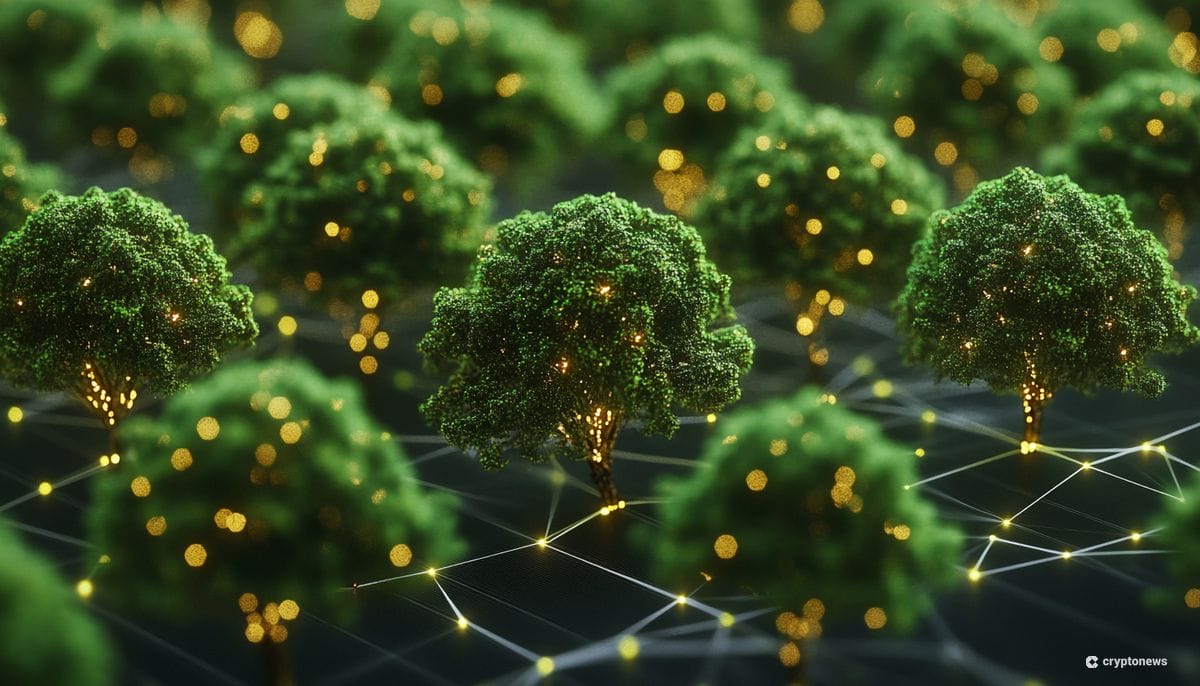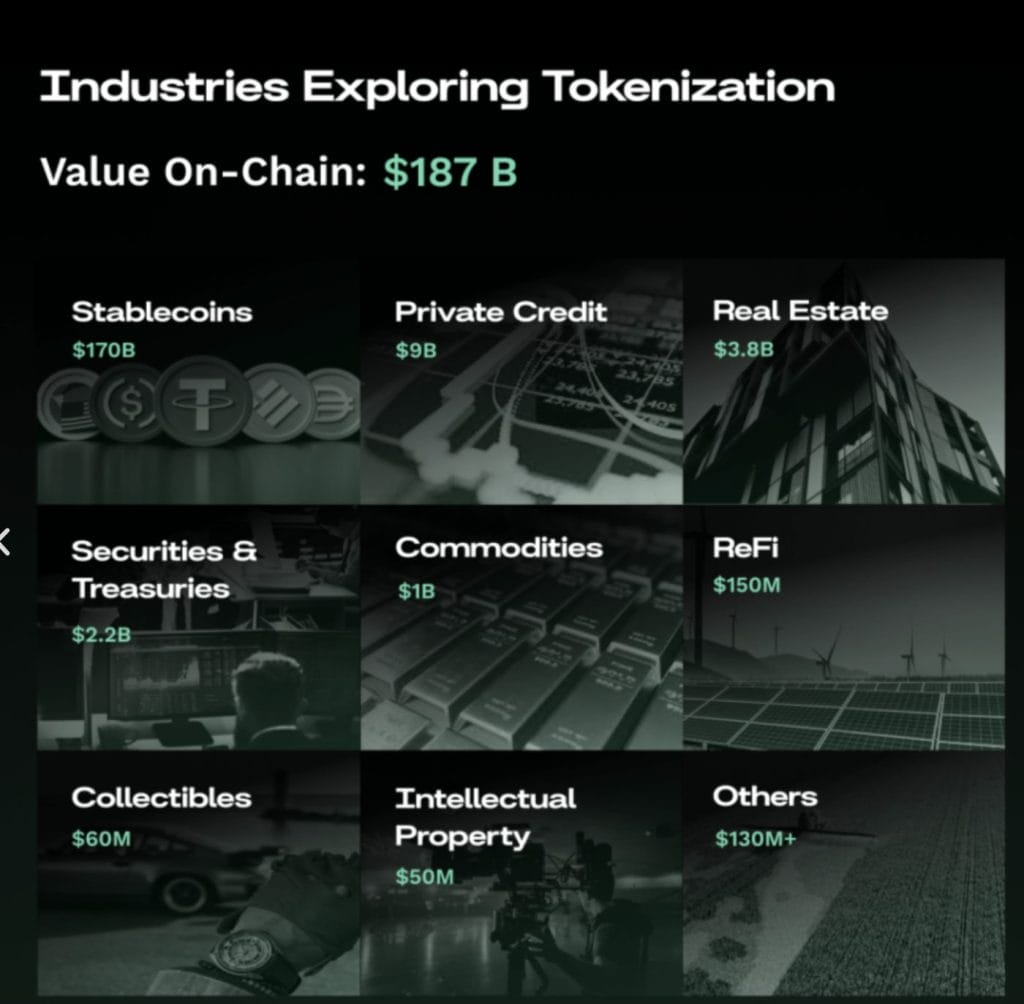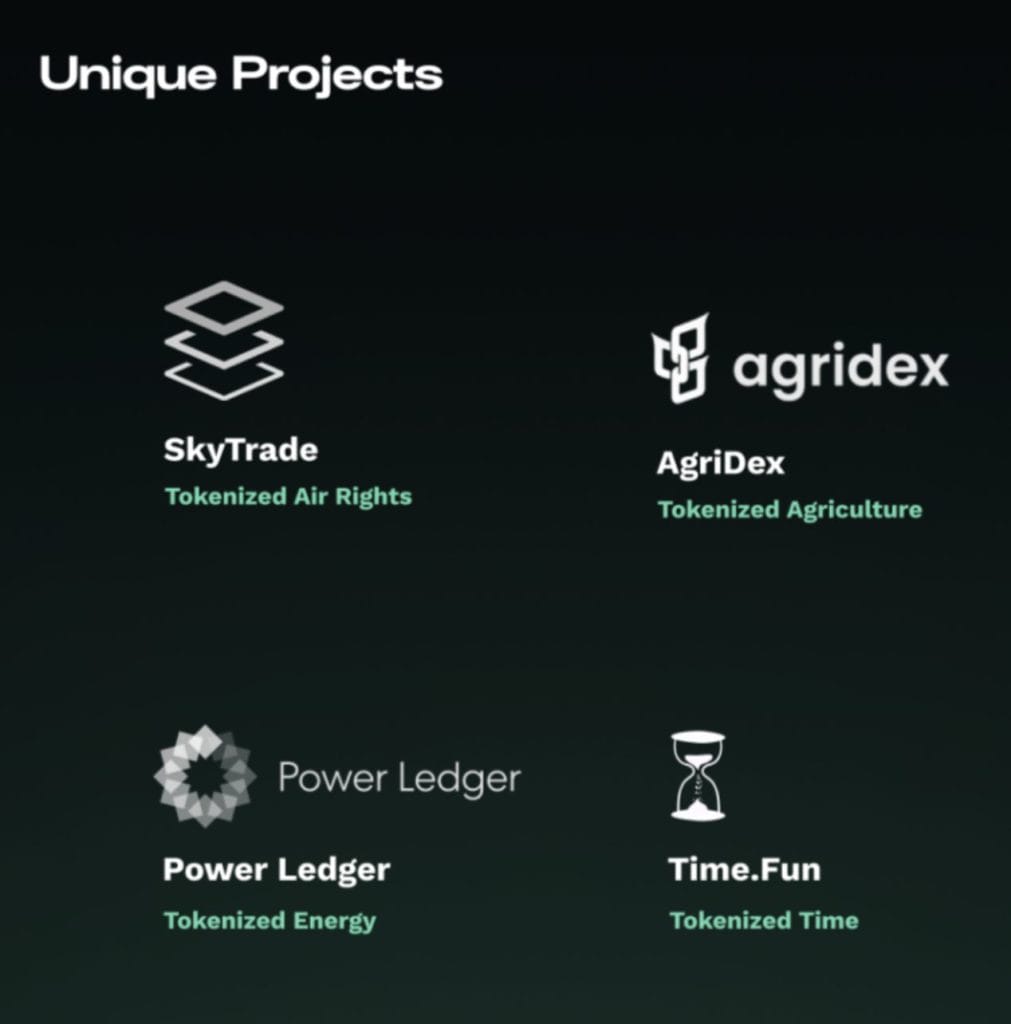Last updated:
 Why Trust Cryptonews
Why Trust Cryptonews

Real-world asset (RWA) tokenization is on the rise and is predicted to disrupt a number of industries in the financial services sector.
According to a recent report from Tren Finance, the RWA tokenization sector could see more than a 50-fold increase by 2030.
Currently, about $185 billion worth of real-world assets have been tokenized. Stablecoins make up the majority of the RWA sector, accounting for over $170 billion of the market.
Other sectors including real estate, commodities, and government securities dominate tokenization use cases.

RWA Tokenization Expands To Unique Markets
As the RWA tokenization sector matures, use cases will likely encompass a variety of global financial markets.
Niche projects are demonstrating that tokenization can extend beyond traditional financial markets and disrupt industries in unexpected ways.

Zachary Nelson, Growth Lead at Tren Finance, told Cryptonews that the emergence of niche tokenization projects reflects the maturation of blockchain infrastructure.
“Improvements in scalability, security, and interoperability have reduced adoption barriers for both permissioned and permissionless ledgers,” Nelson said. “This foundational development has enabled founders to explore applications beyond traditional asset classes.”
Tokenizing Air Rights For Trading
For example, tokenization platform SkyTrade is focused on tokenizing and trading “air rights,” which allow real estate owners to claim the vertical space above their property, including drone flight paths.
Interestingly enough, the market for air rights is quite large with SkyTrade estimating a global market value of up to $30 trillion.
In New York City alone, air rights are valued at approximately $550 billion, while London’s are estimated at $51 billion.
Jonathan Dockrell, co-founder and CEO of SkyTrade, told Cryptonews how real estate owners and municipalities currently cannot trade air rights. SkyTrade solves this issue through tokenization.
“Real estate owners claim air rights on our platform, tokenize them, and make them available for trade,” he said. “Air rights have multiple use cases, including upzoning, drone operators, protecting views, and holding them as valuable assets.”
Dockrell added that the growing demand for air rights is driven by real estate developments and drone technology advancements. SkyTrade is creating a marketplace to trade these rights efficiently.
How Air Rights Are Tokenized
While the concept may sound complex, Dockrell explained that SkyTrade helps users tokenize and manage their air rights effectively.
As of early 2024, SkyTrade has tokenized 7,000 airspaces with a total value of $35 million.
“Users – which include landowners and property brokers – claim and list the airspace above their properties on the SkyTrade platform,” Dockrell explained. “SkyTrade then offers tools that help estimate the value of airspace based on factors like location, demand, and potential use, such as for drone pathways or future development.”
Once the land or airspace is defined and verified, SkyTrade converts this information into a token referred to as a “land token.”
This token represents ownership or usage rights for that specific air rights above that land.
Dockrell elaborated that the tokenization process involves using smart contracts. Smart contracts automate the transaction process, ensuring that ownership is transferred securely and transparently.
“The land tokens are recorded on the Solana blockchain, ensuring a secure and immutable ledger of ownership. This adds trust and verification to the process,” Dockrell remarked.
Land tokens can also be listed on the SkyTrade marketplace for auction or outright offers.
Users can buy, sell, or lease these tokens, while developing asset management strategies around SkyTrade’s open market.
Tokenizing Lego Models
Another innovative application of tokenization involves the billion-dollar LEGO industry.
Community-driven layer-1 blockchain 3DPass enables users to upload unique 3D objects on-chain, such as LEGO models.
Adam Moor, a community representative for 3DPass, told Cryptonews that this concept resonates with LEGO enthusiasts.
“Creators build their LEGO models, scan them with their smartphones, and tokenize them via the 3DPass app,” he said.
Once tokenized, creators can break their models into individual bricks, which can then be transferred or sold.
This also helps address counterfeit challenges by using a digital fingerprint, known as a “HASH ID,” to verify each object.
While 3DPass has not yet tokenized any LEGO models, Moor told Cryptonews that the platform is fully equipped to do so, offering creators a unique way to monetize and protect their creations.
Tokenizing Tree Plantations
According to Tren Finance’s tokenization report, the market potential for tokenized agricultural assets is enormous.
The global agricultural market, valued at $11.3 trillion in 2022, is projected to grow to $15.6 trillion by 2030, offering substantial opportunities for tokenization.
Ankur Rakhi Sinha, Co-Founder and CEO of Airchains, told Cryptonews how SankalpTaru, an NGO in India, is demonstrating the potential of tokenized agriculture.
“SankalpTaru features a technical process that ensures that every tree planted is a tokenized transaction,” he said. “Each batch of 25 trees is a transaction on a smart contract, protected by zero-knowledge proofs and fully homomorphic encryption.”
Sinha explained that RWAs, such as trees, are represented on-chain.
“Every planted tree is geo-tagged, photographed, and immortalized on a blockchain. Volunteers record the health and maintenance of the trees, and the information is reported back to the charity through a decentralized app,” he added.
Over 10 million trees have been recorded on-chain by SankalpTaru, and this data helps organizations fulfill their corporate social responsibility (CSR) obligations while ensuring transparency.
Challenges May Create Slow Adoption
While unique tokenization use cases offer innovative solutions, regulatory uncertainty and a limited understanding of blockchain technology may slow adoption.
A report from The Financial Stability Board highlighted several challenges, such as liquidity risks, asset price instability, and operational vulnerabilities.
Despite these hurdles, Nelson told Cryptonews that he remains confident in the future of tokenization.
“Major institutions project market sizes ranging from $2 trillion to $30 trillion by 2030,” he said.
Nelson also pointed to the success of initiatives from BlackRock and Franklin Templeton as signs that tokenization will continue to grow, democratizing access to traditionally exclusive markets.
“The future of tokenization lies in its ability to democratize access to traditionally exclusive markets and services. As more targeted solutions emerge across different sectors, we expect to see tokenization make various industries more accessible to everyday users while addressing specific market needs,” Nelson said.


















